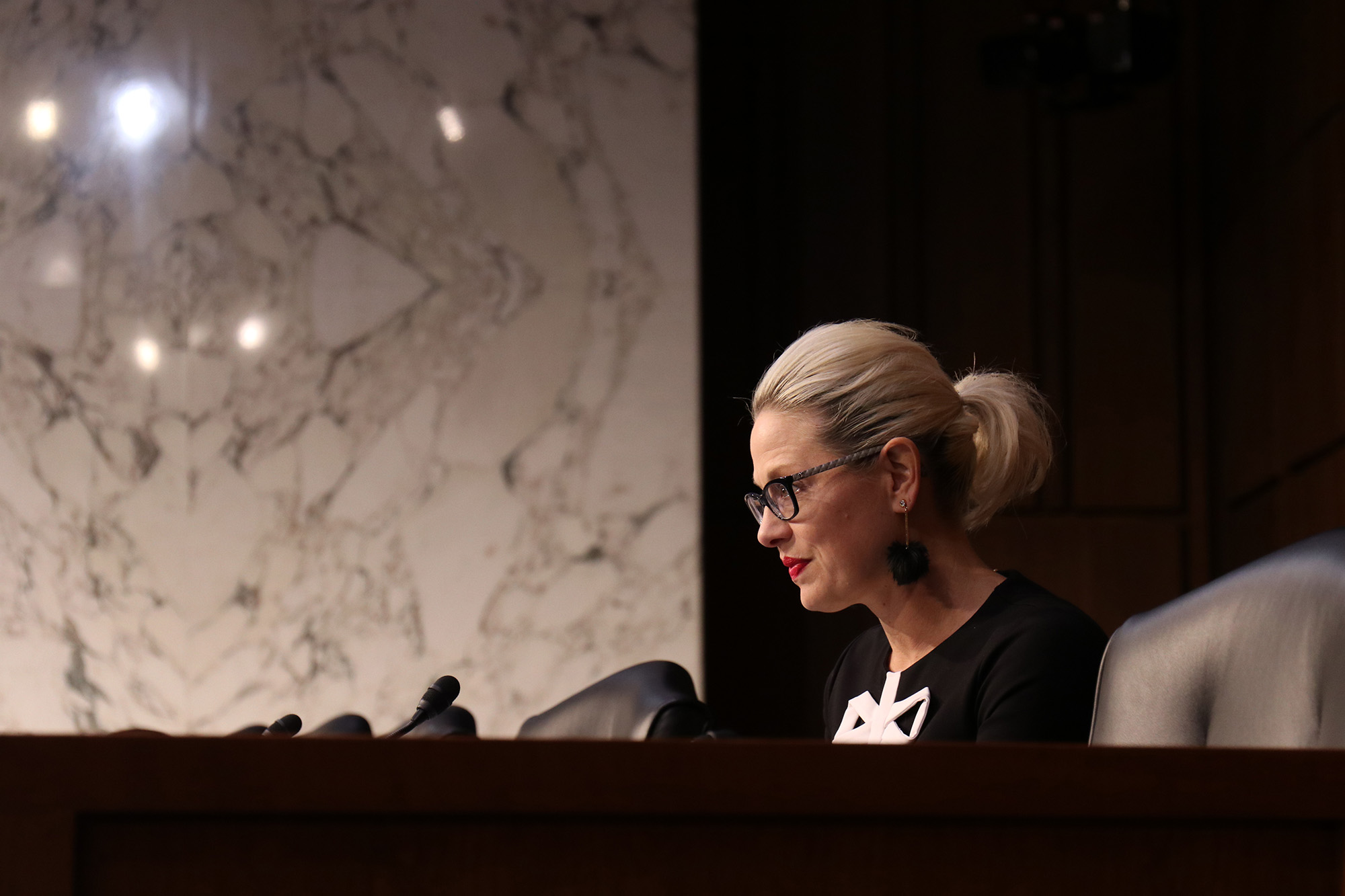
Photo by Keerthi Vedantam / Cronkite News
FOR IMMEDIATE RELEASE
April 24, 2020
Following Sinema’s Urging, Agencies Reverse Course and Allow Tribal Communities Access to the Paycheck Protection Program
PHOENIX – Following calls from Arizona senior Senator Kyrsten Sinema, the Treasury Department and the Small Business Administration (SBA) reversed course and made administrative changes to allow Tribal gaming operations to apply for and receive Paycheck Protection Program funding.
“I’ve heard directly from Tribal leaders in Arizona about the economic struggles facing their communities during the coronavirus outbreak. The federal government’s exclusion of gaming operations from critical coronavirus-relief funds was unacceptable. I’m glad the Treasury Department and Small Business Administration did the right thing and are now allowing Tribal communities full access to the Paycheck Protection Program,” said Sinema.
Previously, the U.S. Department of the Treasury prohibited Tribal communities with Tribal gaming operations from accessing Paycheck Protection Program funding, despite that not being Congress’s intent when drafting the CARES Act. Unlike state and local governments, Tribes do not have a tax base to generate revenue. Funding for programs comes from Tribally owned enterprises or the federal government. As a result of the coronavirus pandemic, Tribal funds are stretched by expenditures critical to protect public health and safety. Excluding Tribal gaming operations from applying for PPP funding oftentimes amounts to excluding the primary employer on Tribal reservations. Sinema urged the Treasury Department and SBA to reverse course and allow Tribal gaming operations access to PPP funding. Following Sinema’s letter, the federal agencies reversed course.
Sinema holds regular calls with Tribal leaders on the coronavirus outbreak in their communities and needed coronavirus relief. Sinema, along with a bipartisan and bicameral group of lawmakers, urged the administration to swiftly implement the bipartisan CARES Act law and ensure resources are deployed quickly to support Tribal communities in Arizona. Sinema also asked the administration to make a stronger effort in consulting with Tribal Nations in order to truly reduce the spread of coronavirus throughout Arizona. Following Navajo Nation President Jonathan Nez’s request that the non-federal cost-share portion of the FEMA-Tribal Agreement be waived, Sinema urged the Director of FEMA to waive tribal governments’ portion of costs of FEMA’s coronavirus response efforts to protect the health and safety of tribal communities.
The U.S. Senate unanimously approved the Sinema-shaped legislative package that included robust support of $10 billion in Tribal government services and programs, including $2 billion for the Indian Health Services, to ensure Native communities across Arizona get the health care and resources they need.
Sinema has a resources page on her website, www.sinema.senate.gov/corona, for Arizonans looking for updated information in English and Spanish on the coronavirus.
Tuba City Regional Health Care Corporation (Navajo Nation)
HHS Small Ambulatory Program Awards $55 Million to 15 Tribes and Tribal Organizations (Indian Health Service)
Indian Health Service Announces New Deputy Director for Quality Health Care and Enterprise Risk Management (Indian Health Service)
Federal Emergency Management Agency (FEMA)
White House Office of Management and Budget (Joe Biden Administration)
Tuba City Regional Health Care Corporation (Arizona, Navajo Nation)
Oklahoma City Indian Clinic (OKCIC)
Indian Health Service (Department of Health and Human Services)
Navajo Nation Town Hall (Arizona, New Mexico, Utah)
Navajo Nation (Arizona, New Mexico, Utah)
Tribal organizations statement on advance appropriations for Indian Health Service
Indian Health Service Statement on Advance Appropriations (Department of Health and Human Services)
Indian Health Service (Department of Health and Human Services)
Indian Health Service (Department of Health and Human Services)
